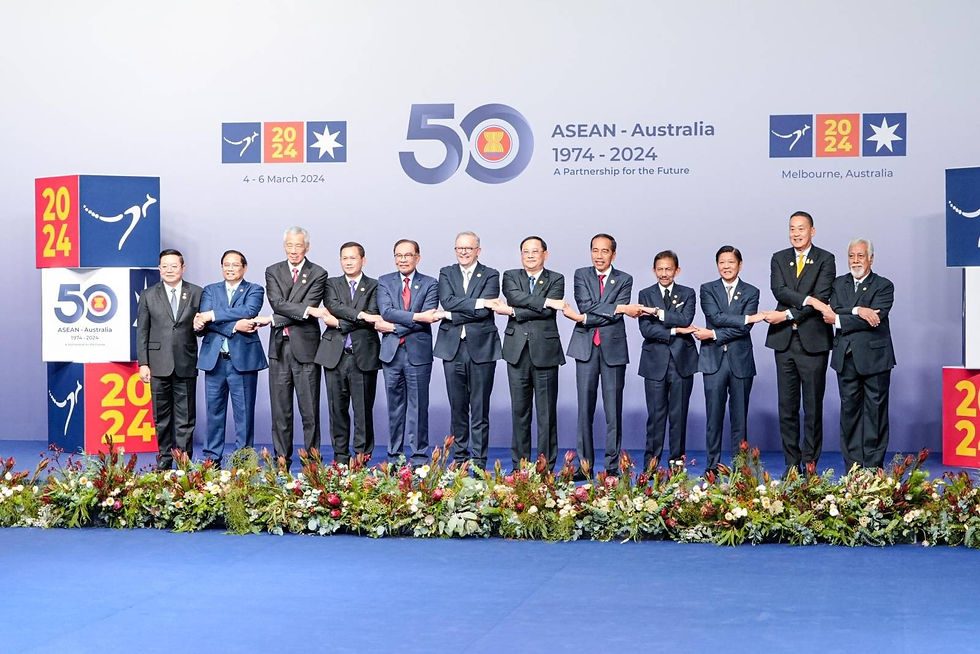The complex geopolitics of damming the Blue Nile
- Mar 6, 2021
- 4 min read
Shannon McGarry | Middle East and North Africa Fellow
Once famous for providing a cradle for ancient Egyptian civilisation, today the Nile river represents one of the longest running water disputes in the world. The Grand Ethiopian Renaissance Dam (GERD), set to be filled by June, threatens its downstream desert neighbours, Egypt and Sudan, causing tensions in the region to grow.
Egypt has enjoyed a millennia-long monopoly over the Nile waters, however, the construction of the GERD could threaten the status quo. Egypt relies almost solely on water from the Nile to support its’ one-hundred million-strong population and agricultural sector, and claims that changes to water supply resulting from the GERD presents an ‘existential threat’ to the state. Egypt’s primary concerns are that without a multilaterally agreed upon legal framework and dispute settlement mechanism Ethiopia will fail to release enough water to mitigate any drought that occurs. Sudan’s Prime Minister, Abdalla Hamok, shares this concern, stating that the “dam threatens at least twenty million Sudanese”, amounting to half of the Sudanese population, as it poses potential risks to the safety of Sudan’s own dams.
Egypt and Sudan initially sought a multilateral agreement with Ethiopia prior to the GERD’s construction. But as the dam approaches completion, Egypt and Sudan have shifted their focus from preventing its construction towards securing a political agreement for the management of the dam, seeking to establish a legally binding agreement to facilitate the dam’s filling and operation. This has been met with resistance from Ethiopia which prefers a non-binding set of guidelines.
This stalemate has heightened tensions between the three states, particularly in Egypt where President Abdel Fattah al-Sisi has described “the flow of the Nile to Egypt as a matter of life and death” and a “national security issue that can never be compromised on”. Egypt has a history of making threats over the Nile, with former President Anwar el-Sadat stating: “the only matter that could take Egypt to war again is water.” Despite this strong stance, direct armed conflict has never come to fruition over the Nile.
The GERD is designed to store up to seventy-four billion cubic metres of water and generate 15,000 gigawatts of electricity annually, making it the largest hydroelectric power plant in Africa. Ethiopia claims that the GERD will enable a number of states in the region to have access to a more affordable source of power, whilst simultaneously managing water level and salinity. However, until an agreement can be reached it is unlikely that the region will enjoy the proposed benefits of the GERD.
Historically, colonial treaties have swung the power imbalance over the Nile in Egypt’s favour have made it increasingly difficult to come to an agreement. The 1959 Nile Waters Agreement between Egypt and Sudan allocated water usage between the two states, granting sixty-six per cent and twenty-two per cent respectively, leaving twelve per cent for evaporation. Ethiopia and other riparian states were not consulted in any of these treaties, despite Ethiopia’s water contributing to more than eighty-five per cent of the Nile. As a result, the treaties have been widely rejected by upstream riparian states, labelling them untenable and anachronistic.
The Nyerere Doctrine has since been established asserting that former colonies are not obligated to uphold colonial treaties, but despite this, Egypt insists it maintains ‘natural and historical rights’ to the Nile. This is exacerbated by the three states adopting differing views on how international law principles on equitable use and harm ought to apply to the dispute.
But it is not only water concerns complicating establishing an agreement between the three states. The dispute is made even more complex by Ethiopia’s emerging civil war which led to thousands of refugees fleeing into Sudan impacting Sudan’s already fragile transition, leaving its economy at near collapse and political intuitions in advanced decline. This has increased tension on the Sudan-Ethiopia border escalating to accusations of violations of sovereignty resulting in military threats from each side. As failed negotiations over the GERD continue to degrade regional cooperation, fuelling regional antagonism and suspicion, it is increasingly clear that these interrelated crises receive urgent attention.
Egypt’s endorsement of the Sudanese proposal to internationalise the dispute calls upon the international community in resolving these disputes. Whether this will be successful remains to be seen, as previous attempts by the international community mediate between the states over the past decade have made little progress.
However, it remains vital that the states come to an agreement so as to ensure all people in the region have access to water. There must also be more concerted action on forming an overarching agreement involving all eleven riparian states establishing a legal regime for the management of the Nile. An agreement would allow for equitable sharing of water resources and provide a reliable legal framework for the Nile, and likely decrease tensions between the three States, having immense geopolitical implications for peace and security in north-eastern Africa.
Shannon McGarry is the Middle East and North Africa Fellow for Young Australians in International Affairs.




Commenti